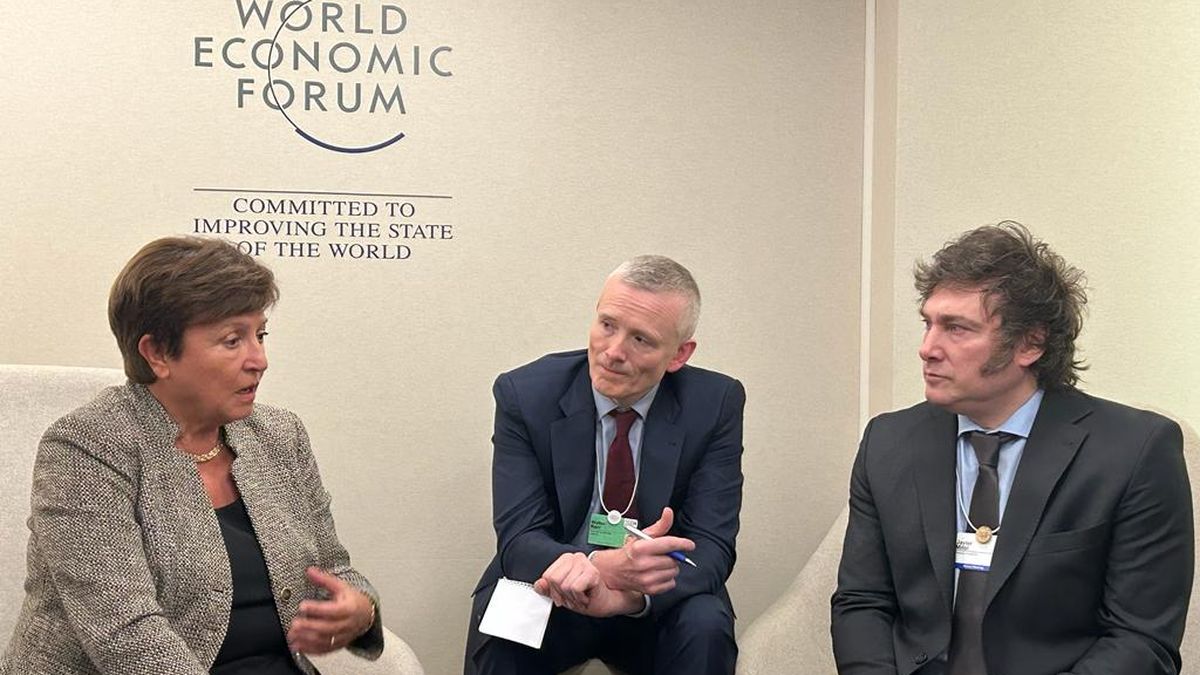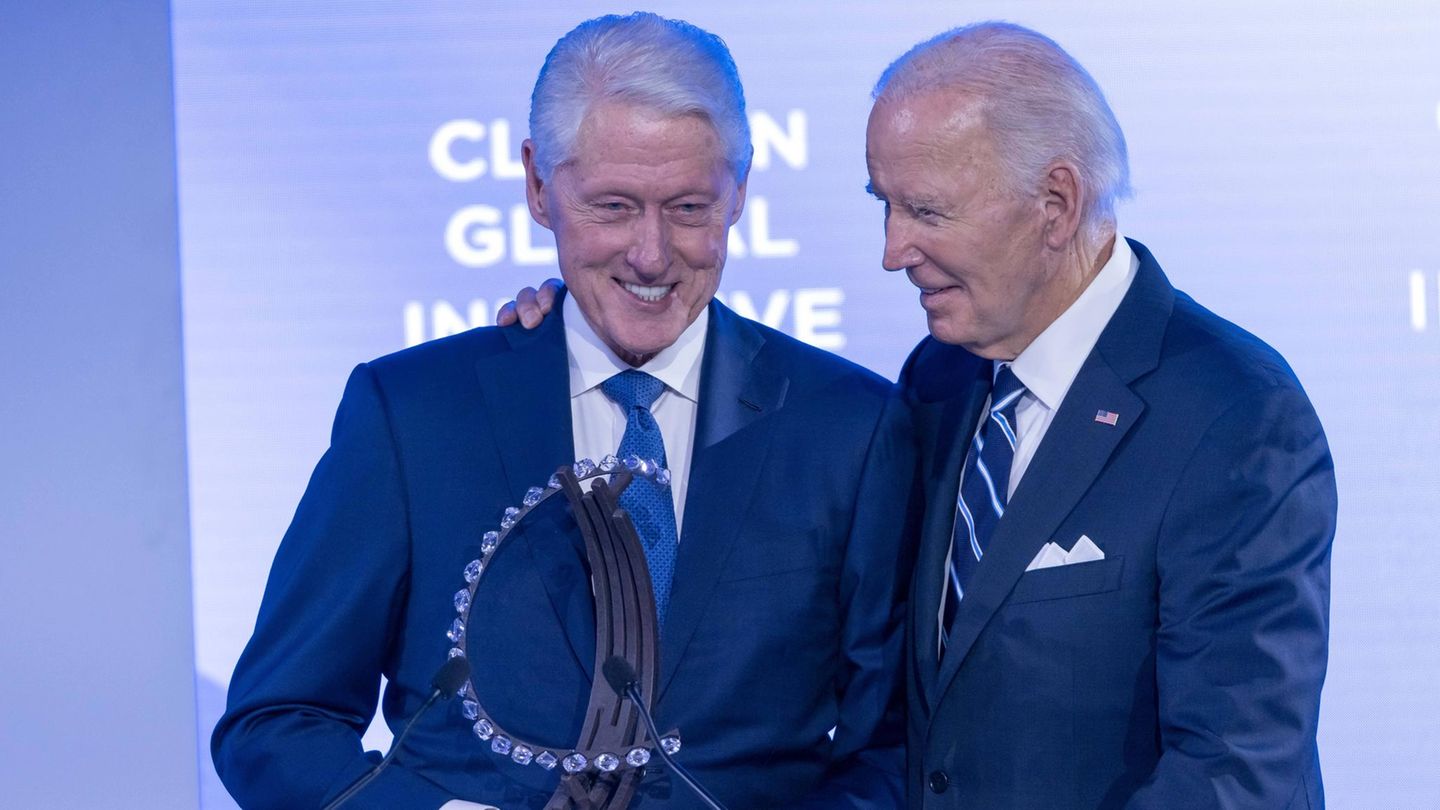A month after the technical team of the International Monetary Fund (IMF) and the Argentine authorities will reach an agreement on the eighth review of the assistance program provided by the organization, its Board of Directors finally decided to approve this revision. Thus about US$800 million are released. The Fund stated that it is necessary improve fiscal adjustment and move towards “an improved monetary and exchange rate policy framework.”
Through a statement released late this Thursday, the IMF reported that “the decision of the Executive Board allows a disbursement of around US$800 million to support the efforts of the authorities to strengthen the disinflation process, rebuild fiscal and external reserves and shore up the recovery.”
The organization stated that “The program remains firmly on track, with all quantitative performance criteria having been met by the end of March 2024.””.
gita.PNG
However, he also emphasized that “To maintain progress, it is necessary to improve the quality of fiscal adjustment, take the first steps towards an improved monetary and exchange rate policy framework, and implement reforms to unlock growth, formal employment and investment”.
The Board of Directors also considers that “it will be necessary to continue efforts to support the most vulnerable, expand political support and ensure agility in policy formulation.”
He board It also approved non-compliance waivers for a new foreign exchange restriction and multiple foreign exchange practices in the context of some easing of restrictions on dividend payments.
Meanwhile, it is expected that this Friday the president Javier Milei meets with the managing director of the IMF, Kristalina Georgieva and is expected to begin talking about a new agreement.
External front
In this way, the Ministry of Economy tends to clear the outlook on the external front, after having managed to get the Central Bank of the People’s Republic of China to renew the entire activated tranche of the swap for 35 billion yuan – equivalent to 5,000 million dollars. This line, which expired in the coming weeks, was renewed for a period of 12 months.
After receiving net reserves in negative territory, at around 11.5 billion dollars, the Central Bank was rebuilding them – so far this year it bought more than 14 billion dollars -, from which private calculations estimate that they are now slightly positive.
Delay
In international media It was striking that the approval was delayed for a month of the progress of the Argentine program (the deadlines are usually shorter) and even more so taking into account that, as recognized by the Fund itself, the technical staff evaluated that “better than expected results were obtained –all performance criteria were over-met.”
The resolution of the IMF Board of Directors coincides with the approval by the Senate of the base bill and the fiscal package. In this regard, it is worth remembering that the organization has been suggesting that the Government has to expand political support for the reforms it is carrying out.
In his last press conference, Julie Kozack, Director of Communications of the Fund, said that “As we have said many times in the past, it remains essential to work to expand political support for stabilization and macroeconomic reforms.”
With the advancement of the basic law in the upper house, the administration of Javier Milei gave a sample of governance which was favorably read by the markets, as reflected in the prices of Argentine assets and financial dollars.
This was the case despite the fact that the senators introduced various changes to the original text: the elimination of the pension moratorium was excluded, the number of state companies with the possibility of privatization was reduced, the number of institutions that could not be dissolved was expanded, the the sectors linked to the RIGI and the obligation was incorporated for companies to cover part of their supply with national companies, among other modifications.
Regarding the Fiscal Package, the Government also achieved its approval, although with changes because the senators rejected the restitution of the Income Tax and the changes in Personal Assets.
The modifications in both laws should return to the Chamber of Deputies, where the modifications made will be accepted or rejected (with a simple majority).
From the point of view of fiscal policy, the issue that the Fund follows most closely, President Milei already announced that Treasury accounts will be in surplus in the first half of the year.
Meanwhile, this Thursday the INDEC reported that the Consumer Price Index corresponding to last May was 4.2% monthly, the lowest figure since January 2022. In official media they also highlight that core inflation was lower -3.7%-.
This result had been anticipated by the Minister of Economy, Luis Caputowho also stated that the “era of negative real rate ended”. This advertisement is located in tune with the thinking of the Fund that has insisted on the need to encourage domestic savings through financial returns that are not eroded by inflation.
Source: Ambito




